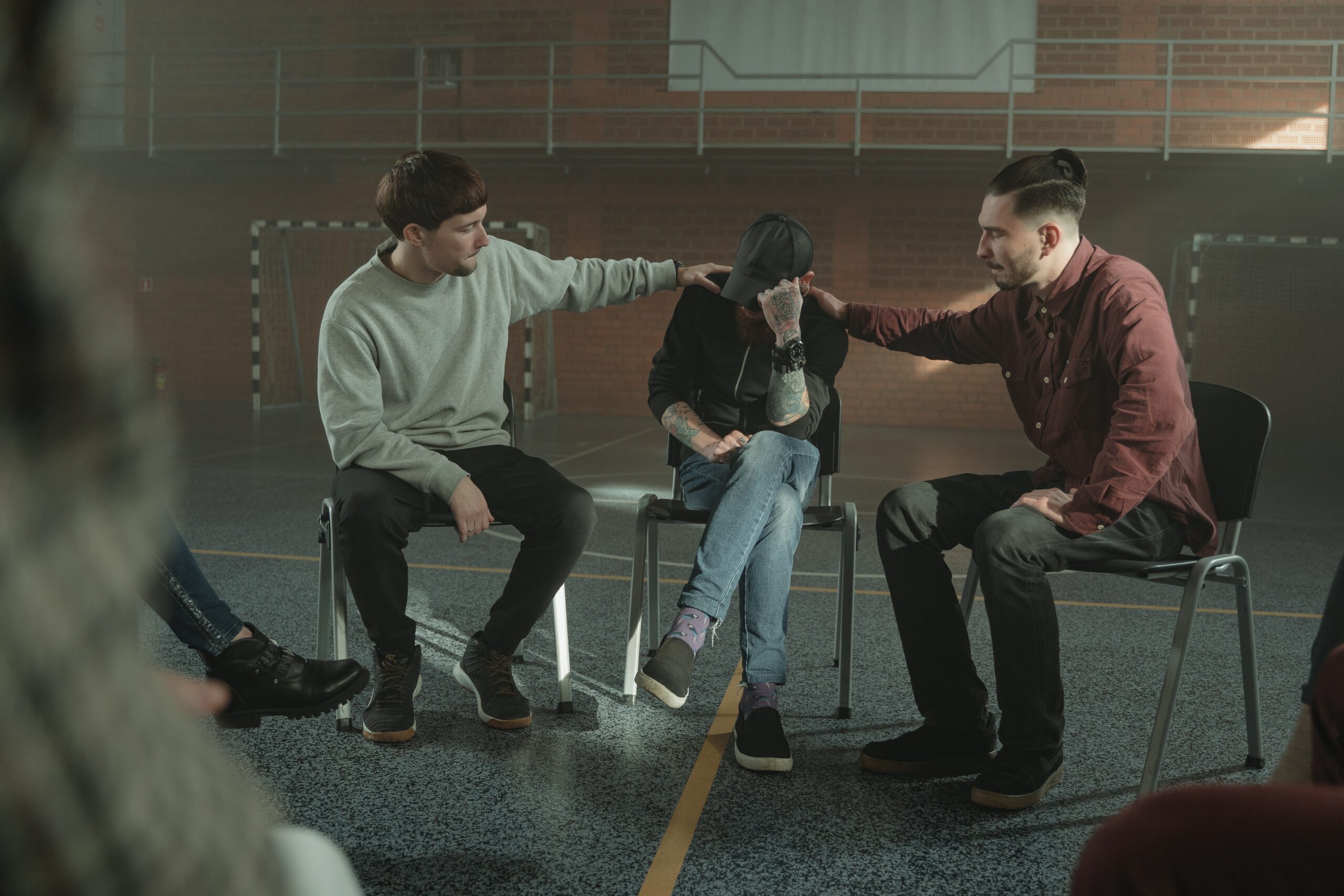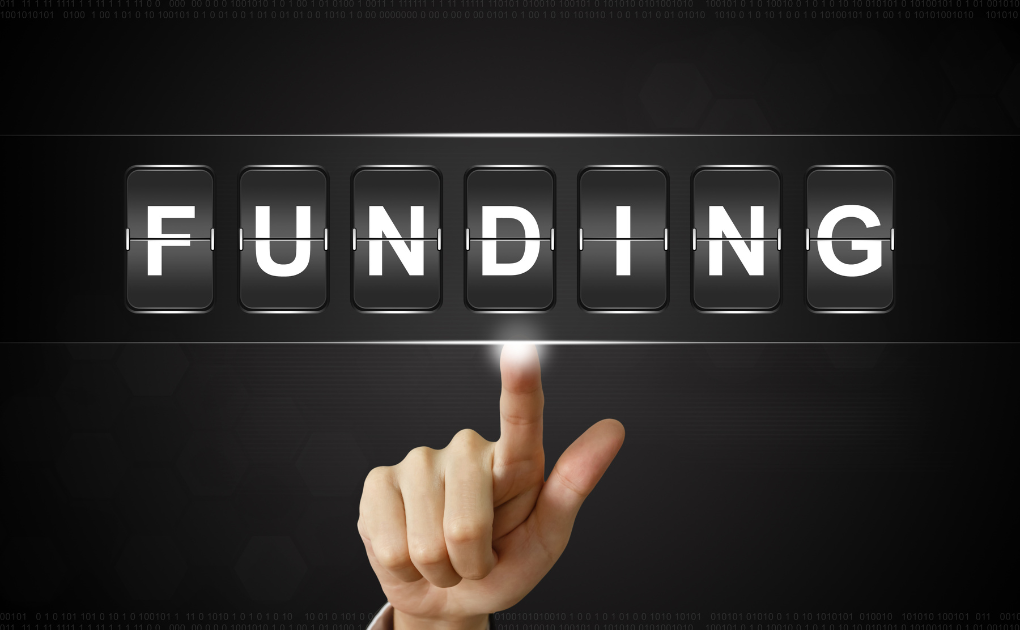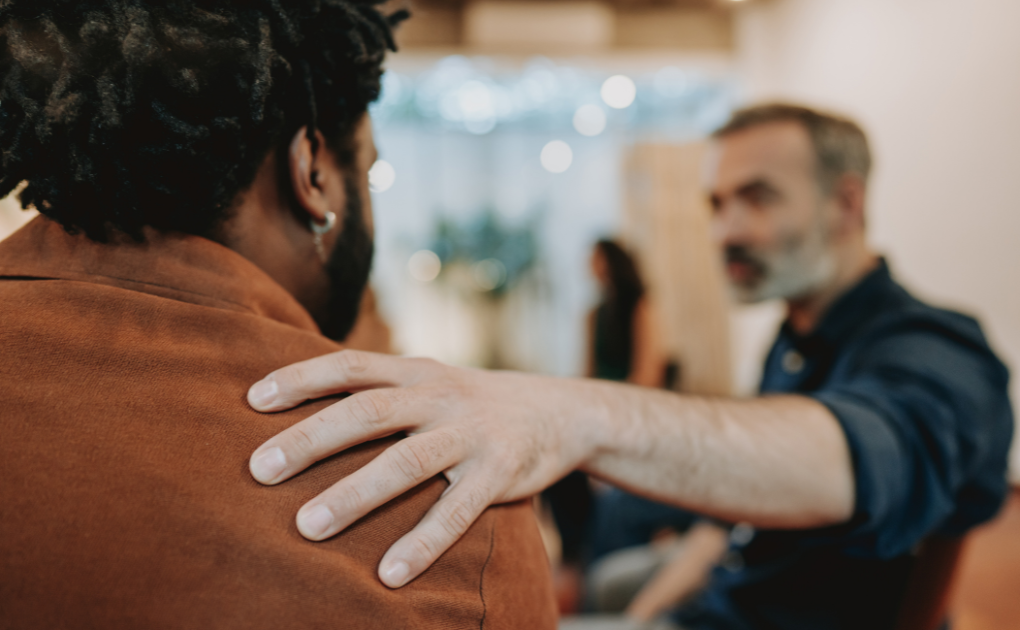I worked in a men’s day rehabilitation program with predominantly court-mandated clients for many years. At the end of every four-hour treatment day, sixty men would rush down the two dark, narrow stairways to catch their buses or get off the property to light up cigarettes.
One afternoon amid this chaos, I left for lunch early. On my way out, a young man held the door for me.
I honored this gesture with my customary, Thank you, sir.
He smiled and made eye contact. On the steps, we shared a brief conversation before parting.
This may not sound unusual until you realize he was a black gang member, court-mandated to treatment by probation. This respectful, compassionate exchange happened with other court-mandated clients watching him hold the door for me – a short, middle-aged white counselor. It took courage to open that door and pause to interact with me.
For the 13 years I worked at this treatment center, I regularly experienced interactions like this one.
Why?
Early in my career as a clinician, I learned that the commonplace tactics of using fear and bargaining did not work. Instead, they made me the enemy and prevented me from forming a positive therapeutic alliance with clients.
I am also not a big or powerful woman; I stand only five-foot tall—but they would say of me, “She be little, but she be fierce.”
Not because I am aggressive, bossy, or bitchy, but because I am fearless in the face of strong emotions. I am not afraid of carefrontation, angry outbursts, arguments between patients, emergencies, crises, or threats.
Instead, my motto is to get softer when they get louder. I validate feelings and experiences by giving voice to outrage.
It is usual for a person to feel outraged when their power is taken away. Affirming their right to be angry or outraged or to hold a different opinion validates their inherent worth.
In over 30 years of working with court-mandated men and women, I was never threatened, hurt, or afraid for my life. This was despite the many tough calls I had to make.
I recommended discharge, called 911 to send someone for a suicide evaluation, and made a child abuse reports. Yet, these tough calls never threatened my therapeutic alliance with clients. Partly because I included the client in every conversation, supported them through the process, and often encouraged them to make the calls themselves, with me in the room. These calls rarely damaged the therapeutic alliance.
Instead, respect, nonjudgment, and positive regard persisted, and each client felt it.
Research shows that the attitude of the counselor, peer, or helper determines the outcome of the client relationship. It is a basic human need to want to feel a positive connection, especially during times of stress.
And yet, throughout my career (and still), I have heard horror stories of the treatment people experience in addiction treatment centers, hospitals, doctor’s offices, and communities.
The stigma is often present from their first encounter with the front office staff to the treatment updates sent to the referral sources. The client sees it in a tone of voice, a dismissing demeanor, or facial expressions demonstrating a lack of compassion.
There is a tendency to feel power over mandated individuals—to feel like we have the leverage to “make” them comply with treatment. Yet, compliance with treatment is not recovery, and exerting our power does nothing to improve the client’s outcome or to prevent more death from overdose.
Dr. Berry, a clinical psychologist with 40+ years in addiction treatment, often quotes the Muppets “Peoples are peoples.” When we see every person as “peoples” – not addicts, prostitutes, uneducated, minorities, and so many other labels – we recognize that they are just like us.
Then we can partner with them and help change their lives. When they believe you are in their corner—for them, not against them—pointing out strengths, not focusing on weaknesses or mistakes—they change their narrative and believe in themselves. We may be the only person who affirms them for their positive qualities and attributes—and means it.
It comes down to compassion and authentic connection—feeling good about offering a space for someone else to improve their life—regardless of their past.
It is a dramatic shift in thinking.
In the day rehabilitation program, we built a community every three months. It was a team effort, and people often stopped thinking about being mandated. Instead, they often came in early and actively participated in their recovery.
I would hear things like, “This is the only place I feel safe all day.”
The things that divided them outside the facility dissolved for their four hours of treatment. Their territories, their races, and their social statuses. None of that mattered inside.
What made this program stand out among thousands of other programs? A committed team that cared about the clients and wanted them to succeed. People on the team were unafraid to tackle strong emotions with compassion, empathy, and respect while holding firm boundaries in love.
Whenever a young man held the door for me, embraced recovery, or thanked me for believing in them, I was in awe. To help me remember that hope, I keep thousands of pictures of what each one looked like when they completed the program—so dramatically changed. I have never worked anywhere that facilitated such drastic changes in people over such a short period.
Over the years, I realized the skills that made this shift possible were all learnable—by everyone committed to forming compassionate alliances that change lives.
So….
I challenge you to learn these skills—and to lean into encouragement, hope, and awe over scare tactics and bargaining.
Look beyond the behavior and realize what it took for someone to connect with you. Look at their resilience instead of their criminal history, alcohol/substance use, or trauma history.
Today, we lose too many people to overdoses, prison sentences, and drug-induced accidents—and it’s unnecessary.
The research shows that people heal in compassionate relationships. Look within to identify your hidden bias or need to be in control—and embrace the Spirit of Motivational Interviewing, partnership, acceptance, compassion, and empowerment, and overlay it with Trauma Responsive Care. Add a dose of vicarious resilience. With this, we might begin to turn the opioid epidemic and other alcohol and substance use disorder problems around.
Motivational Interviewing (MI) is an evidence-based communication style that teaches the skills highlighted in this article. Practicing MI improves your emotional intelligence as you look for the meaning behind words, attitudes, and body language.
Together we can make a difference.



